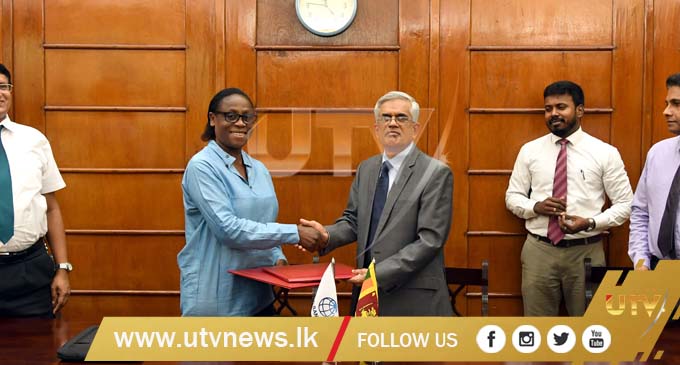(UTV|COLOMBO) – Sri Lanka signed a $100 million credit agreement with the World Bank to support Sri Lanka’s efforts to strengthen and modernize the general education system in the country.
The General Education Modernization Project (GEM)will modernize and diversify the curriculum of general education in keeping with the transformation taking place in Sri Lanka’s society and economy.
Greater emphasis will be on strategic subjects that are key for economic development such as English and Mathematics.
The project will help broaden choices at the GCE A-level grades so that students have the flexibility in selecting subjects from among the arts, management, science, technology, and vocational streams. Learning material for English language and Mathematics will be developed digitally and the focus will be on children from schools located in more disadvantaged regions.
“Sri Lanka has made impressive progress in expanding access to education. However, to reach the status of an Upper Middle-Income Country, it needs to further improve the overall learning outcomes. Sri Lanka’s education policy makers recognize that a high-quality general education system will enable students to meet the demands of 21st century jobs,” said Idah Z. Pswarayi-Riddihough, World Bank Country Director for Sri Lanka and the Maldives. “We are happy to partner with the Government to ensure that all children have the opportunity to gain foundational skills, especially in Mathematics and English, needed to participate in Sri Lanka’s economic growth,” she added.
The project will benefit school students both at the primary (grades 1-5) and at the secondary (grades 6-13) levels. Technical education and vocational training institutes, academic and managerial staff of the schools will also benefit from this project.
The World Bank has been a longstanding partner of Sri Lanka in the education sector. The Transforming School Education System Project (TSEP), supported by the World Bank, has helped the country increase the survival rate of students from grades 1–11 (ages 6–16) to over 87 percent; introduced a regular cycle of national assessments of learning outcomes, and started School Based Management (SBM) to support the administration of schools in all zones. In addition, TSEP helped in strengthening the capacity of the decentralized tiers of education administration.
“GEM will support the government to modernize the primary and secondary education system in line with international standards established in middle-income and high-income education systems.” said Harsha Aturupane, Lead Economist and World Bank’s Task Team Leader for the project. “Successful implementation of the overall general education reform program and the key priorities supported by GEM should lead to improved learning outcomes and higher socio-emotional skills among students” he added.
The General Education Modernization Project, approved today, will build on the experience and lessons learned from TSEP and strengthen the World Bank’s support to the general education sector.
[alert color=”faebcc” icon=”fa-commenting”]Keeping up to date with breaking news while you are on the move is now simple with UTV Alerts [textmarker color=”8a6d3b”]Type REG UTV and send to 77000[/textmarker] on your Dialog, Airtel, or Hutch mobile connection[/alert]

